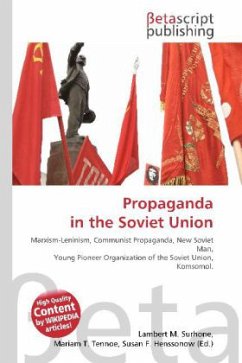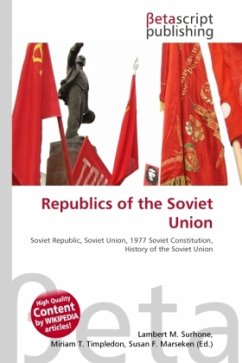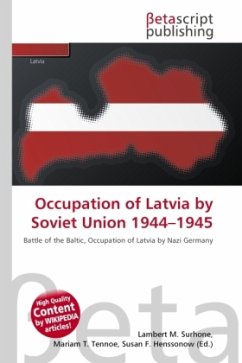
Philosophy in the Soviet Union
Versandkostenfrei!
Versandfertig in 6-10 Tagen
26,99 €
inkl. MwSt.

PAYBACK Punkte
13 °P sammeln!
Philosophical research in the Soviet Union was officially confined to Marxist-Leninist thinking, which theoretically was the basis of objective and ultimate philosophical truth. During the 1920s and 1930s, other tendencies of Russian thought were repressed many philosophers emigrated, others were expelled. Stalin enacted a decree in 1931 identifying dialectical materialism with Marxism Leninism, making it the official philosophy which would be enforced in all Communist states and, through the Comintern, in most Communist parties. Following the traditional use in the Second International, oppon...
Philosophical research in the Soviet Union was officially confined to Marxist-Leninist thinking, which theoretically was the basis of objective and ultimate philosophical truth. During the 1920s and 1930s, other tendencies of Russian thought were repressed many philosophers emigrated, others were expelled. Stalin enacted a decree in 1931 identifying dialectical materialism with Marxism Leninism, making it the official philosophy which would be enforced in all Communist states and, through the Comintern, in most Communist parties. Following the traditional use in the Second International, opponents would be labeled as "revisionists". From the beginning of Bolshevik regime, the aim of official Soviet philosophy was the theoretical justification of Communist ideas. For this reason, "Sovietologists", whom the most famous were Józef Maria Boche ski and Gustav Wetter, have often claimed Soviet philosophy was close to nothing but dogma.












